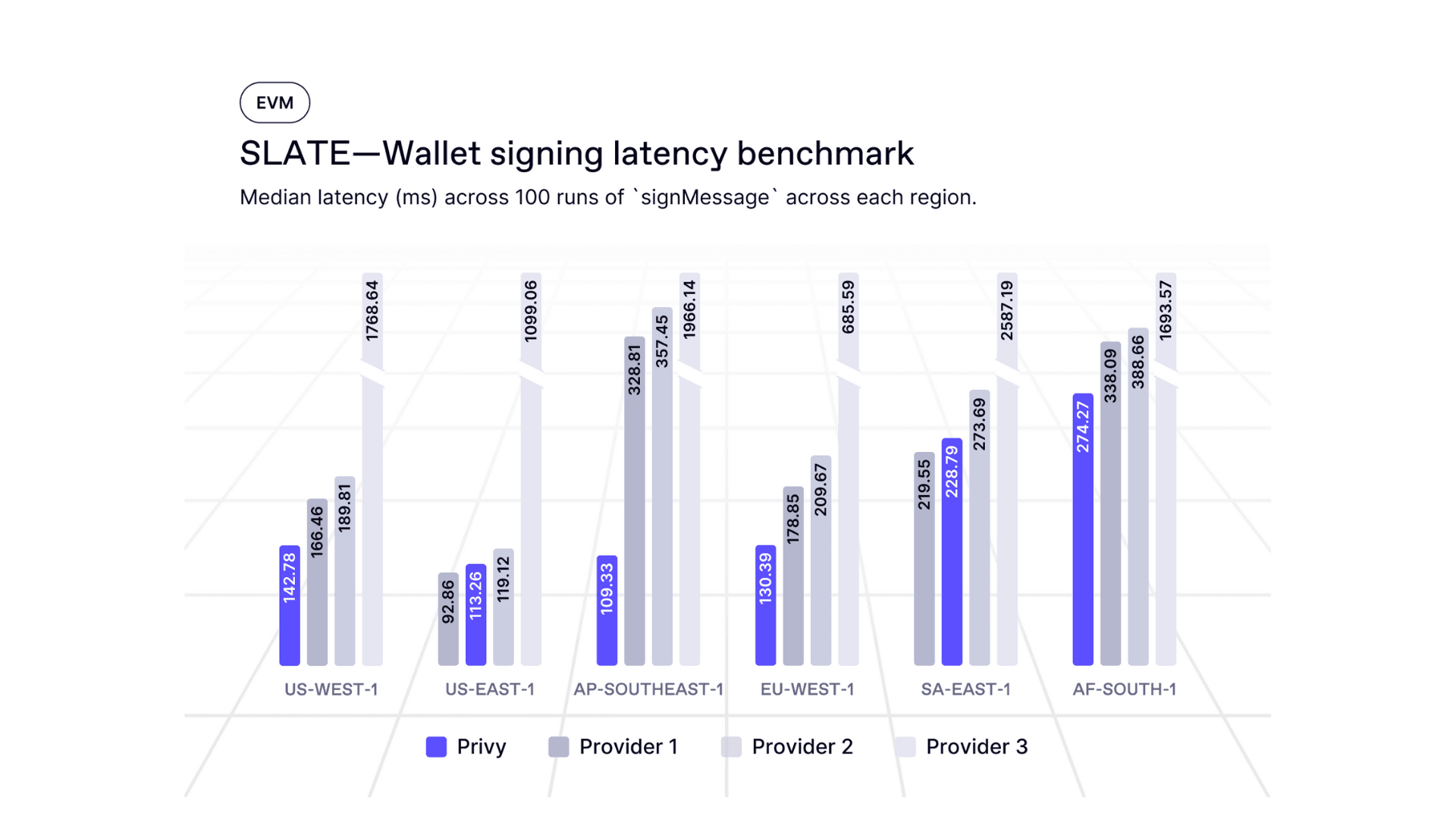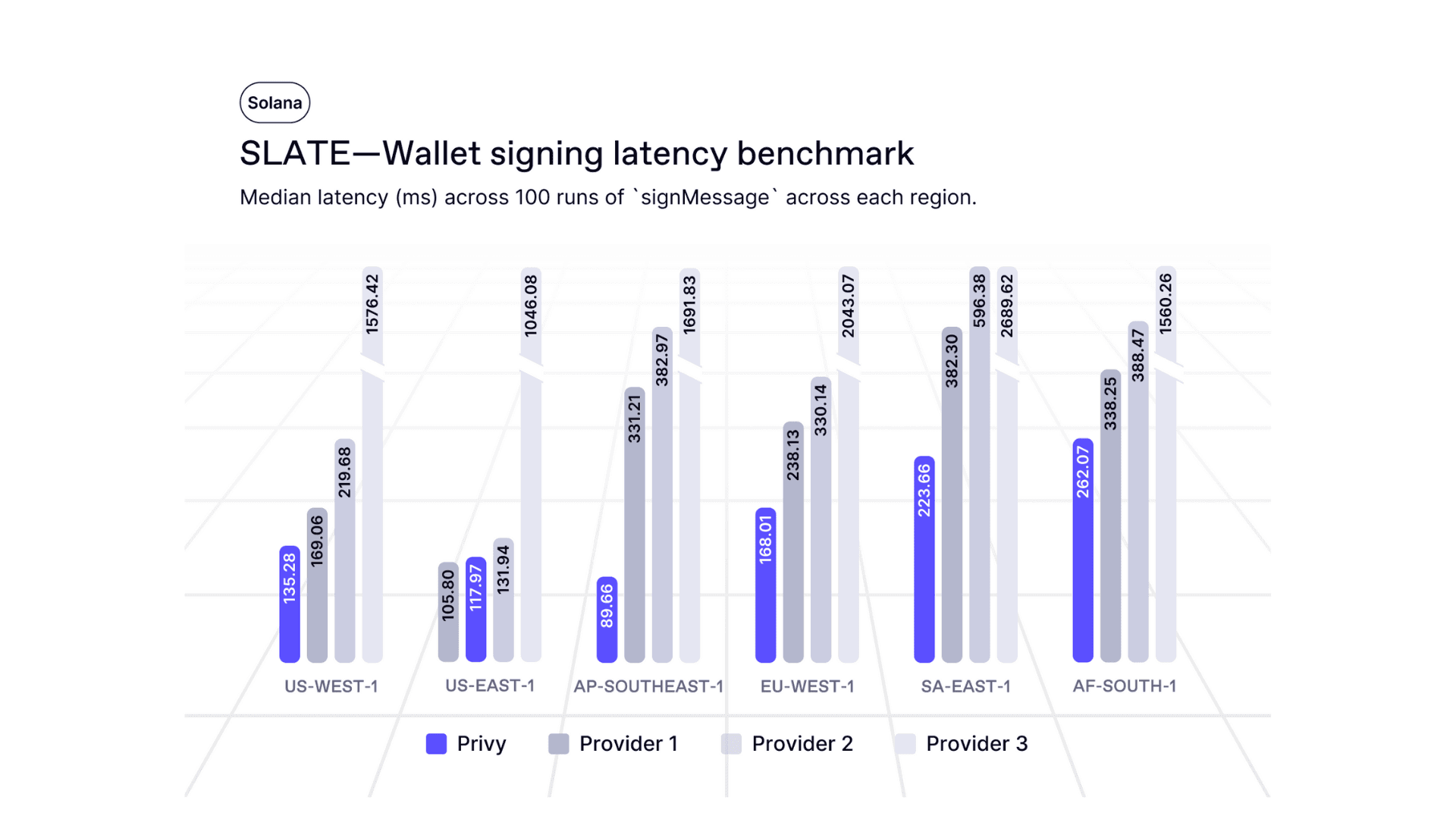Introducing SLATE: an open benchmark for wallet signing latency
Setting a new standard for wallet performance through standardized benchmarking and open-source measurement across providers, chains, and regions
Henri Stern
|Oct 9, 2025

Today, we’re excited to open-source SLATE. SLATE is a no-frills, open benchmarking tool for measuring signing latency across wallet service providers in crypto.
At Privy, we build embedded wallet and secure signing systems so any developer can easily build global bank accounts and flexible control systems for digital assets directly into their product. Much of our work focuses on building systems that are secure, flexible, and fast. Across trading, consumer, payments, and banking, our customers want fast infrastructure and money rails at Internet speed. This has meant investing heavily in server colocation and runtime optimizations for TEEs as well as ensuring wallets can be run locally to cut down on network latency.
We also spend a lot of time advising customers on the infrastructure they should run to build world-class products. This means making informed decisions based on data to pick an infrastructure provider. As parts of the computing landscape mature, they develop robust benchmarking to evaluate tooling. Crypto is no exception and needs more standardized benchmarks.
To that end, we are excited to open up SLATE. SLATE is a Simple Latency Evaluation tool for wallet infrastructure. We built SLATE to measure and optimize Privy performance for users all around the world. Today, you can use it to test out service providers across regions and blockchains.
For instance, the results below compare Privy to other wallet providers across 6 global regions on both EVM and Solana (note that Privy on-device signing has <5ms performance).


How to use SLATE
To get started, just head to the SLATE repo and run your own benchmarks.
SLATE gives you a testing harness to easily benchmark wallet signing latency, meaning support for:
Multiple wallet service providers
Ethereum and Solana signing
The ability to run benchmark for requests stemming from any AWS region
Note that SLATE measures signing latency only as provided by provider APIs – the time from request to response for signing operations. This is important in ensuring apples-to-apples comparisons. This means only the actual API call is timed, not SDK initialization, message encoding, signature verification. The harness ensures all services receive:
The same test messages
The same warmup iterations
The same delays between requests
The same error handling
The same verification process
We use public APIs across the harness so these are real-world results you would get using any service provider. There may yet be idiosyncrasies across service provider setups, so if you notice any gaps with SLATE methodologies, please open up an issue or PR.
Building on our work with SLATE
This is only the beginning for us. We are continuing to optimize our on-device and TEE-based signing systems to drive even greater performance for all Privy customers.
Crypto is a global technology. Users deserve performant infrastructure wherever they are. We hope SLATE can help push forward industry standards, and are grateful to keep building with you.

